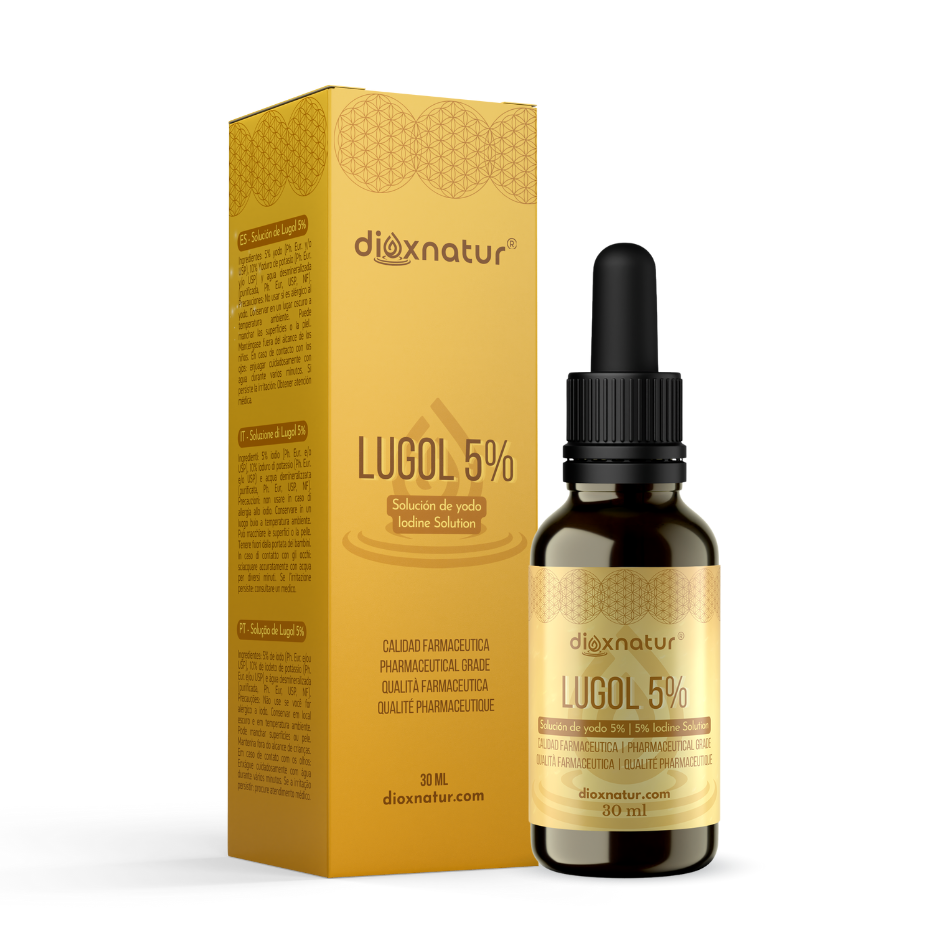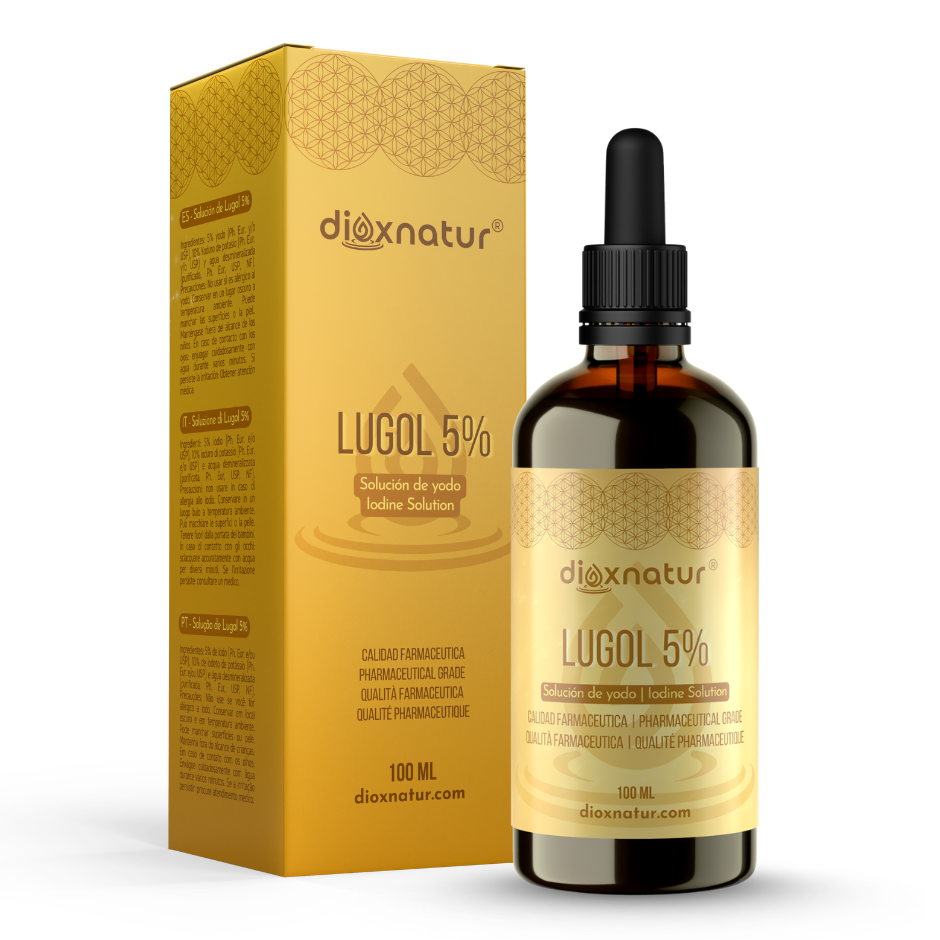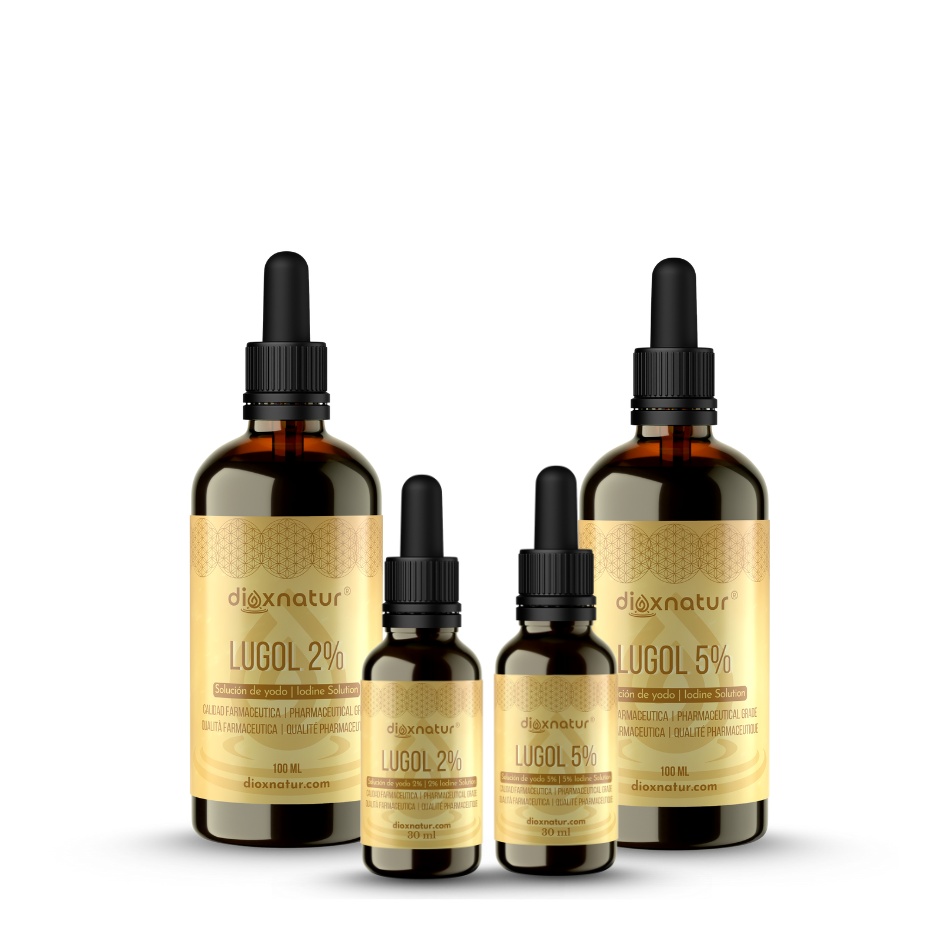Radioiodine therapies are a key treatment for various thyroid conditions, especially hyperthyroidism and certain types of thyroid cancer. This article will guide you through what you need to know about radioiodine and Lugol's role in these therapies.
Effective treatments with radioactive iodine

What is radioactive iodine and how does it work?
Radioactive iodine, or radioiodine, is a radioactive form of iodine that is used in nuclear medicine to treat thyroid diseases. Once administered, it accumulates in the thyroid gland and selectively destroys thyroid cells, helping to reduce thyroid activity or eliminate cancer cells.
Benefits of radioactive iodine therapies
Radioiodine therapies are highly effective and minimize the need for invasive surgical interventions. They are particularly useful in patients with hyperthyroidism who do not respond to other treatments, and in those with thyroid cancer to remove any remaining thyroid tissue post-surgery.
The role of Lugol in radioactive iodine therapies
Preparing for radioactive iodine therapy
Lugol's solution, which contains iodine, is often used before radioactive iodine therapy to prepare the thyroid. Lugol's solution saturates the thyroid with nonradioactive iodine, helping to control the uptake of radioactive iodine and increasing the effectiveness of the treatment.
How Lugol protects the thyroid during therapy
Using lugol before treatment can reduce the risk of unwanted tissues absorbing radioactive iodine, thereby protecting other organs and minimizing side effects. This preparatory process is crucial to the success of the therapy.
Lugol as an alternative and complement in therapies
Use of Lugol in non-radioactive conditions
In addition to purchasing Lugol's 5% for use in preparation for radioactive therapies, Lugol's is also used to treat non-radioactive thyroid conditions such as goiter and hypothyroidism by providing essential iodine for normal thyroid function.
Bibliography and References
To provide accurate and reliable information on the use of radioactive iodine and Lugol's in thyroid therapies, this article has relied on a variety of reliable sources and authoritative studies in the field of nuclear medicine and endocrinology. Listed below are some of the key references that you can refer to for more detailed information and case studies on the topics discussed:
- American Thyroid Association: Provides a detailed overview of the use of radioactive iodine in the treatment of thyroid problems, including hyperthyroidism and thyroid cancer. This resource is invaluable for understanding how radioactive iodine works.
Link to source: Radioactive Iodine - American Thyroid Association
- Radioiodine Timing Study in the Treatment of Thyroid Cancer: This study addressed the importance of the timing of radioiodine therapy after thyroid surgery and found that the timing does not significantly affect thyroid cancer outcomes.
Link to source: Radioactive iodine therapy timing in thyroid cancer treatment
- Prevention of Graves' ophthalmopathy after radioiodine therapy: A detailed study of early treatment of post-radioiodine therapy hypothyroidism showed that it can prevent the progression of Graves' ophthalmopathy, a critical issue for patients with Graves' disease.
Link to source: Early treatment of hypothyroidism after radioactive iodine therapy
These sources provide an informed perspective and cover a wide range of topics related to radioiodine thyroid treatment, as well as the complementary role that Lugol's plays in these treatments.









